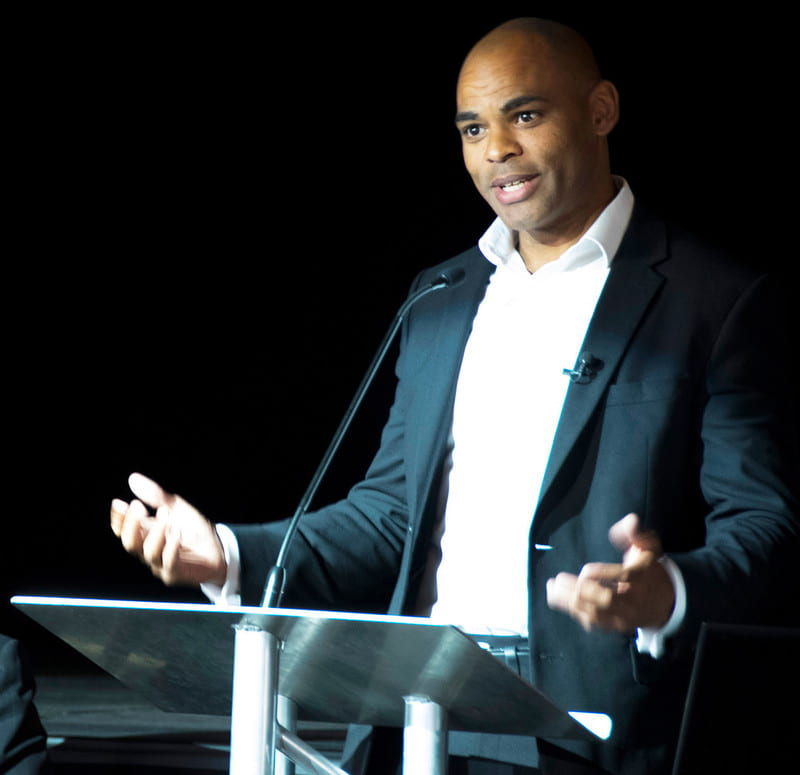Marvin Rees, the Mayor of Bristol, was recently invited to speak to our current MSc Public Policy students on the theme of ‘Leading a City in Turbulent Times’. In this blog, student Isabella Bennett summarises the key points from the lecture.
As the COVID-19 pandemic continues to tear through the globe, the mainstream media focuses on what international leaders are doing. It is very rare that city governance level is analysed in response to various crises thrown up. From this backdrop, Rees suggests that leading a city in turbulent times is just as important as centralised governance.
Turbulence
Rees highlighted that when we define turbulence, it is when it affects wealthy people. Certainly, issues that throw lives into turmoil are continuing to be swept under the rug, until the white, straight, middle-to-higher class man is impacted. For example, the COVID-19 pandemic heavily impacted trade and finance; thus, the news cycle was dominated with stories about the turmoil caused by COVID-19 on trade. In comparison, long term themes of racism, homelessness and domestic violence (key issues spanning generations) are not considered as key points of turbulence until direct attention is paid to them. However, the effects of these issues are felt across large sways of the public.
It is from this that city governance can aid individuals in overcoming turbulence in their lives. Centralised government is increasingly not equipped to deal with these challenges, as the policy cycle is constantly moving. Rees also draws on how an institution can look strong, and resistant to tension, but will crumble when turbulence is introduced. This was the case in the 2008 financial crash, as the previously strong financial market crumbled. Certainly, disinvestment in a service increases its fragility. Indeed, we all have seen that COVID has led to instability in the NHS, as we continue to stay home; and this is felt no stronger than at the local level.
Leadership
It is from these points of turbulence, that we look at city-level leadership. Leadership, Rees commented, takes two forms: short term — responding to immediate crisis, and long-term — building a city that is resilient to future shocks. Certainly, we have seen that the world has become increasingly globalised. Goods, services, ideas and workforces are able to move across the globe at a greater speed than ever before. It is because of this that city leadership is important both nationally, but also internationally. Too often, cities are discussed, but not given an equal footing in policy discussions, yet the policy impacts how the city functions and the lived experiences of its citizens. This was certainly the case during the pandemic, as sovereignty was seated in Westminster to make decisions on lockdown restrictions and tiers. Rees states that leadership needs to go beyond boundaries as the nature of policymaking changes.
Future planning
In times of turbulence, it is understandable that trust is diminished. Thus, Rees made a point that being clear on values brings trust, and this trust becomes an important commodity when making plans. Certainly, a loss of trust comes from politics impacting how the people respond to systems. Rees directly mentions the impact the media has on this trust, as many people’s interaction with politics is through journalistic interpretation. Thus, a key aspect of planning comes from restoring trust from the public, through the media. Future plans, when leading a city do not have to be concrete, but it is important to be adaptable to changing contexts and respond to how this may change ideas for the future. Rees draws on the One City Plan for 2050, and how this has been changed due to the COVID-19 pandemic, and the stalls on industry due to lockdowns.
What can be taken from this?
From Rees’ points above, we can see that city leadership takes a back seat in the discussions on key points of turbulence in our lives. This is despite the citizens living in the city, and their lives being thrown into difficulty. As a result, city leadership must focus on supplying a clear message for the citizens, to instil trust for the future. Moreover, Rees calls for city leadership to play an increased role on the international stage, citing the examples of New York’s mental health policy and Helsinki’s functional city policy on how we can learn from city governance to deal with the long-term issues facing citizens. This is coupled with a lack of trust in centralised government over their handling of the COVID-19 pandemic.
Find out more about MSc Public Policy and BSc International Social and Public Policy at the University of Bristol.



